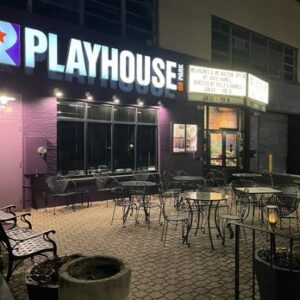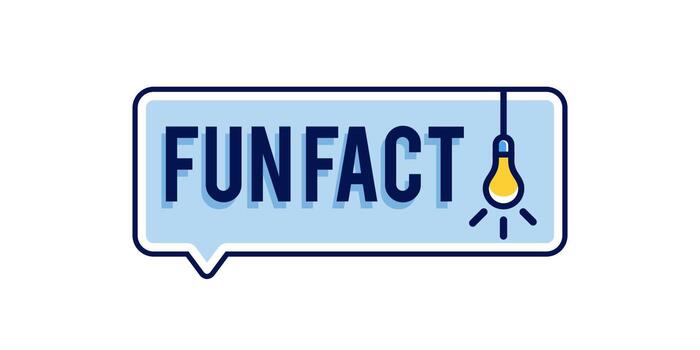On Friday night, my friend and fellow storyteller Jeni Bonaldo and I performed our third installment of “Matt and Jeni Are Unprepared” — a storytelling improv competition in which we tell true stories from our lives based on prompts provided by the audience and each other.
It’s a fairly ridiculous format:
Fill a theater with people so they can watch two storytellers fail to prepare for their performance. We call it “Storytelling on a highwire,” except acrobats practice walking on the highway for years, and a net is positioned below to catch them if they fall.
We don’t practice anything, and there is no net. If we fail, everyone knows it.
The prompts we receive from the audience aren’t always easy. For example, on Friday night, I received “plutonium” and “honeydew” as two prompts. It probably won’t surprise you to learn I don’t have a “plutonium” story.
Perhaps slightly more surprising, I didn’t know what a honeydew was.
I also received the prompt “masturbation,” which was spelled so poorly that Elysha had to decode the slip with her kindergarten teacher skills. We tossed that one away—not because of the content but because prompts must be tangible nouns.
“Masturbation” is a noun but not exactly tangible.
Still, it was better than plutonium.
There is no one in the world with whom I would want to perform this kind of show other than Jeni. She is always brilliant, consistently excellent, funny, and witty.
Audiences somehow love her before she even begins speaking.
On the contrary, a storytelling hero of mine once told me that my problem is that no one likes me when I take the stage. “You have to tell a truly great story every time, or no one will like you.”
He might be right.
Elysha emcees the show, and though she doesn’t tell stories or get judged by the audience, her role is crucial to the show’s success. An emcee who can make an audience laugh, transition between stories with grace, aplomb, and humor, and endear herself to a couple of hundred people almost instantaneously is invaluable.
Elysha and Jeni are actually joyous onstage and exceedingly happy when the show is finished, but they are impossible hours before the show, filled with complaints, contempt, and dread. Jeni will sometimes scold me for “making her do this” and yell at me for ruining her night just before we take the stage to do something incredibly difficult for an audience of paying customers.
It’s great—the perfect way to spend time backstage before a show.
Admittedly, I’m also a little impossible, but on the other end of the spectrum, I am happy and carefree before a show—smiling and chatty. I was eating a hot dog backstage ten minutes before showtime. I’ve had many storytellers and comedians in green rooms before a show ask me to leave because my chattiness and general disposition distract and annoy them.
Never being nervous is a gift to me but sometimes a curse to others.
On Saturday night, I accidentally told a story I had told before. The rules forbade me from telling a story I had previously told onstage, and after the show, Charlie pointed out that I had told a story about my cat, Pluto, in a previous show. I have no memory of performing that story, but I’m sure he’s right.
Oh well. I cheated. Unintentionally.
In fairness, I’ve told about 175 different stories onstage and have another 25 or so waiting in the wings, so it’s hard to remember which ones I’ve told and which are only in my head.
I managed to tell three brand new stories throughout the night, and all three will eventually be crafted into stories I take to The Moth and other stages worldwide. Being forced to find and tell a story in front of a sold-out audience in less than a minute is an excellent way to force yourself into inspiration.
I only experienced one moment of disappointment on Saturday night. Following the show, audience members approached to say hello, congratulate us on our performance, and ask questions. One woman — someone I did not know — introduced herself and complimented me on my performance. “I loved your stories,” she said. “I have no idea how you and Jeni do it. I mean, I’m sure you embellish things a bit to make the stories better, but they were still great.”
I hate this.
I am more than willing to remove something from stories that doesn’t contribute to the story—a person who is present for a moment but does nothing relevant to the story, an inconsequential day between two more relevant days, an event that took place but has no bearing on the story—but I never add things that didn’t happen.
That’s called fiction. I write that, too, in the form of novels, but when I’m talking about my life, everything I say is true to the best of my knowledge.
I can’t even imagine what she might have thought was embellishment. Elysha was onstage with me, and she was present for half the stories I told and could verify their veracity, and the stories where she wasn’t present weren’t exactly unbelievable:
A story about bringing my high school girlfriend home while my mother was peeling and cutting potatoes.
A story about being rejected for student teaching.
A story about arguing with a woman in McDonald’s.
Not exactly unbelievable stuff.
The insidiousness of this kind of comment is that I can’t help but wonder who else in the audience might think my stories aren’t true. How many people in the audience thought that at least some of my stories were made up?
I hate this.
I can remember with great specificity every time an audience member has said something like this to me. Thankfully, it’s only been a handful of times, but those times burned themselves into my brain.
When you stand in front of an audience and share a bit of your life with them—sometimes your most challenging, embarrassing, ridiculous moments—the last thing you want to know is that someone didn’t believe those stories were entirely true.
I’m sure some storytellers make stuff up. Over the years, I’ve heard stories that I knew never happened. But I suspect those kinds of storytellers are rare, and most of us are trying to tell the truth as best we can remember it.
That’s how I approach the craft. That’s what I did on Friday night.
Jeni, too.
The comment by no means spoiled the night. The show was a hit. I had a blast. The outpouring of kind words from audience members since Friday night has been tremendous.
I suspect we’ll perform it soon. Twice a year feels right, and I’m sure I can bully Jeni into agreeing.
But it wasn’t the best way to cap off a performance. Not exactly a cherry on top.
Still, it was a fantastic night alongside two incredible performers.
A night I will always remember.







